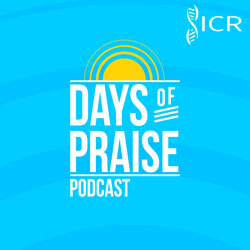“Wherefore she said unto Abraham, Cast out this bondwoman and her son: for the son of this bondwoman shall not be heir with my son, even with Isaac. And the thing was very grievous in Abraham’s sight because of his son.” (Genesis 21:10-11)
After Isaac had been weaned, Sarah noticed Ishmael mocking her and Isaac (Genesis 21:9). During the years since Hagar had given birth to Ishmael (at the insistence of Sarah), Abraham had grown to love Ishmael and had no doubt treated him and Hagar with respect. Now this sudden banishment was demanded under terms that were both harsh and apparently arbitrary.
Nonetheless, God approved because Hagar and Ishmael had become the specific illustration of a distinction between the “flesh” and the “heir” (Genesis 21:12). Although God would take care of Ishmael for Abraham’s sake, Abraham must separate himself and his family from that which would never become part of the Messianic line (Galatians 4:23-31).
The contrast of the two sons is a major teaching in Scripture. Galatians 3:16-29 provides most of the main biblical information. The promise was made to “the seed” (as singular) and the focus is on Christ, not Isaac. All people are under sin and are given the promise by faith. When we believe, we become children of God, in vivid contrast to the “son of the bondwoman.”
That faith is outside of physical relationships, and we become heirs according to the promise. That sacred relationship has been verified by God Himself (Hebrews 6:17-20), making us nothing less than joint-heirs with Jesus Christ (Romans 8:17-21). Thus, all who are heirs can never be connected to the “bondwoman” (Galatians 4:30-31). HMM III
 Days of Praise Podcast is a podcast based on the Institute for Creation Research quarterly print devotional, Days of Praise. Start your day with devotional readings written by Dr. Henry Morris, Dr. Henry Morris III, Dr. John Morris, and others to strengthen and encourage you in your Christian faith.
Days of Praise Podcast is a podcast based on the Institute for Creation Research quarterly print devotional, Days of Praise. Start your day with devotional readings written by Dr. Henry Morris, Dr. Henry Morris III, Dr. John Morris, and others to strengthen and encourage you in your Christian faith.


















